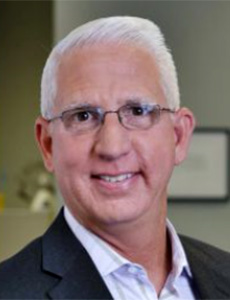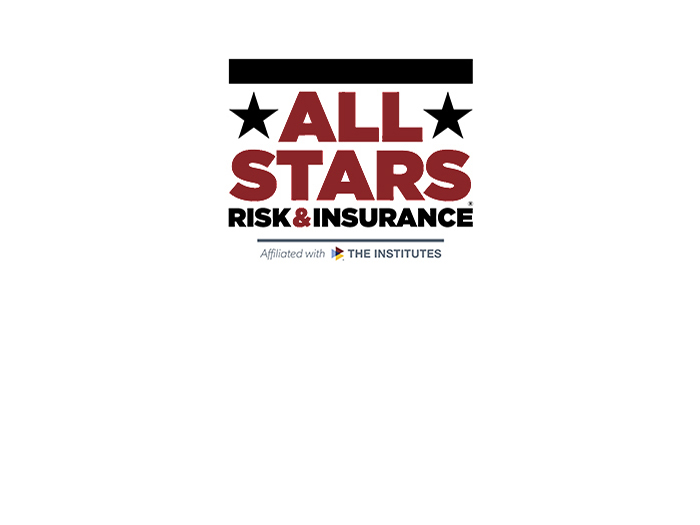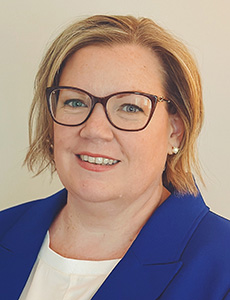Behavioral Health and Physical Health Are Linked. Will Workers’ Comp Pros Accept That and Act On It?

The National Workers’ Compensation and Disability Conference — is going virtual this year, with a one day event on October 21st, followed by an ongoing digital session series throughout the year.
Opening the afternoon session is a discussion about the link between behavioral and physical health, led by David Vittoria, senior vice president, Clinical Services at Carisk, and Tron Emptage, chief clinical officer at Optum.
“Behavioral health issues generally speaking, whether it’s depression, PTSD, substance abuse, are so often overlooked in health care in general, and equally so —perhaps more so — in workers’ comp,” Vittoria explained.
“That compels us to pay more attention to those mental health and wellness issues as it relates to somebody’s overall health and wellness. It happens a lot more often than we think, with a lot deeper impacts that can delay recovery for patients, affect family members and be costly to the claim.”
Defining Behavioral Health Within Complex Claims

David Vittoria, SVP, Clinical Services at Carisk Partners
While the costs of mental health aspects in workers’ compensation claims management are often discussed and parsed, Vittoria and Emptage’s session will take a more comprehensive view of the issue and define behavioral health for claims professionals with the goal of achieving a better working understanding of these complex claims.
“One of things we want to accomplish by having this discussion is education and information for folks. This is an opportunity to explain what we mean when we say behavioral health. It’s an all-encompassing issue that for one person might mean psychosocial issues like transportation, community, finances. That’s a small part of it, but then there’s the mental health and wellness piece,” Vittoria continued.
“In my 30-year clinical experience as a mental health professional, the more we educate, inform, enlighten, the more we lessen the stigma, misguided perceptions, and ill-conceived notions about mental health and wellness.”
Particularly as it relates to family members, the session will also dive into the cascade effect that an injured worker suffering from psychological trauma as well as physical trauma can have on caregivers.
“When we say caregiver, this includes anybody that is directly or indirectly impacted by somebody who gets hurt at work, in any capacity that caregiving is taking place,” said Vittoria.
“As someone who has counseled and also done a lot of training and education with caregivers, validating to the family that what happens to their family member has an impact on them is really important to those social supports. That we have an awareness of the empathy and compassion but also the vulnerability that is present in people who are in support of that injured worker calls upon us to bring the same to them.”
What Role Does Pharmacy Play?

Tron Emptage, R.Ph, MA, Chief Clinical Officer, Optum Workers’ Compensation and Auto No-Fault
Additionally, the link that Vittoria and Emptage will explore with NWCDC participants also extends to the key part that pharmacy plays into appropriate treatment modalities. As workers’ compensation professionals are well aware, polypharmacy has the potential to drastically change the trajectory of a claim if poorly managed.
“From a pharmacy perspective, we want to look toward that total care management and total individual management, looking at our claims more holistically,” Emptage said.
“As I’ve watched workers’ comp in the time I’ve been in the industry, the last 20 years, there has been this shift from very isolated vendors to whole patient care. How do we use all of the different aspects of the claim, the claimant, the person? How do we find those treatment modalities that will best help them?”
A 2018 study focusing on the differences between appropriate polypharmacy (“where the medicine’s use has been optimized”) and problematic polypharmacy (“where the intended benefit of the medication is not realized”) from the California Workers’ Compensation Institute (CWCI) bears out the significance of this point. The CWCI found that “the likelihood that indemnity was paid on a claim increased with the number of concurrent prescriptions” citing that “about half (51.6 percent) of the claims with one to two prescription drugs were indemnity cases versus 91.3 percent of those with five or more concurrent drugs.”
In short, as pharmacy treatment for both physical and mental health increases, so does the necessity of proactive claim management, for everyone in an injured worker’s circle.
“Right medication, right patient, right time, is what we were taught in pharmacy school,” Emptage said.
“That’s changed over the years and as of late it’s ‘right treatment, right patient, right time, for the right duration.’ As an industry we tend to let things go too long sometimes because of some systemic issues.”
The quadratic equation of “right” that needs to occur for the best outcomes is not simply for pharmacy, it’s also part of the psychotherapy determination.
“Therapy means different things to different people,” Vittoria said.
“If we’re talking about severe PTSD, it’s not necessarily long and expensive treatment. You can use something like EMDR, and in eight sessions over 12 weeks, you can achieve an 85 percent reduction in trauma symptoms. CBT for example is usually seen as a silver bullet, well maybe, but there’s seven other clinically proven, evidence-based brief therapies that you can do that don’t include cognitive behavioral therapy.”
Both the pharmacy and therapy pillars of Vittoria and Emptage’s presentation will aim for the heart of a successful mental and physical recovery for today’s injured worker. As Emptage put it, “All of this is about return to work, return to function, return to family.” &
 National Comp will present a special free one-day event on October 21, followed by an ongoing digital session series that runs through next fall.
National Comp will present a special free one-day event on October 21, followed by an ongoing digital session series that runs through next fall.
The event will begin with an opening keynote, “The 5 Most Critical Challenges Facing Workers’ Comp in the COVID Era” at 11:00 a.m. ET and will continue throughout the day with four additional sessions and a closing panel discussion.
“The Link Between Behavioral Health and Physical Health Is Stronger Than You Think” will be held from 12:30-1:30 ET.
You can register for the conference’s virtual event and find out more information about the sessions here. &










